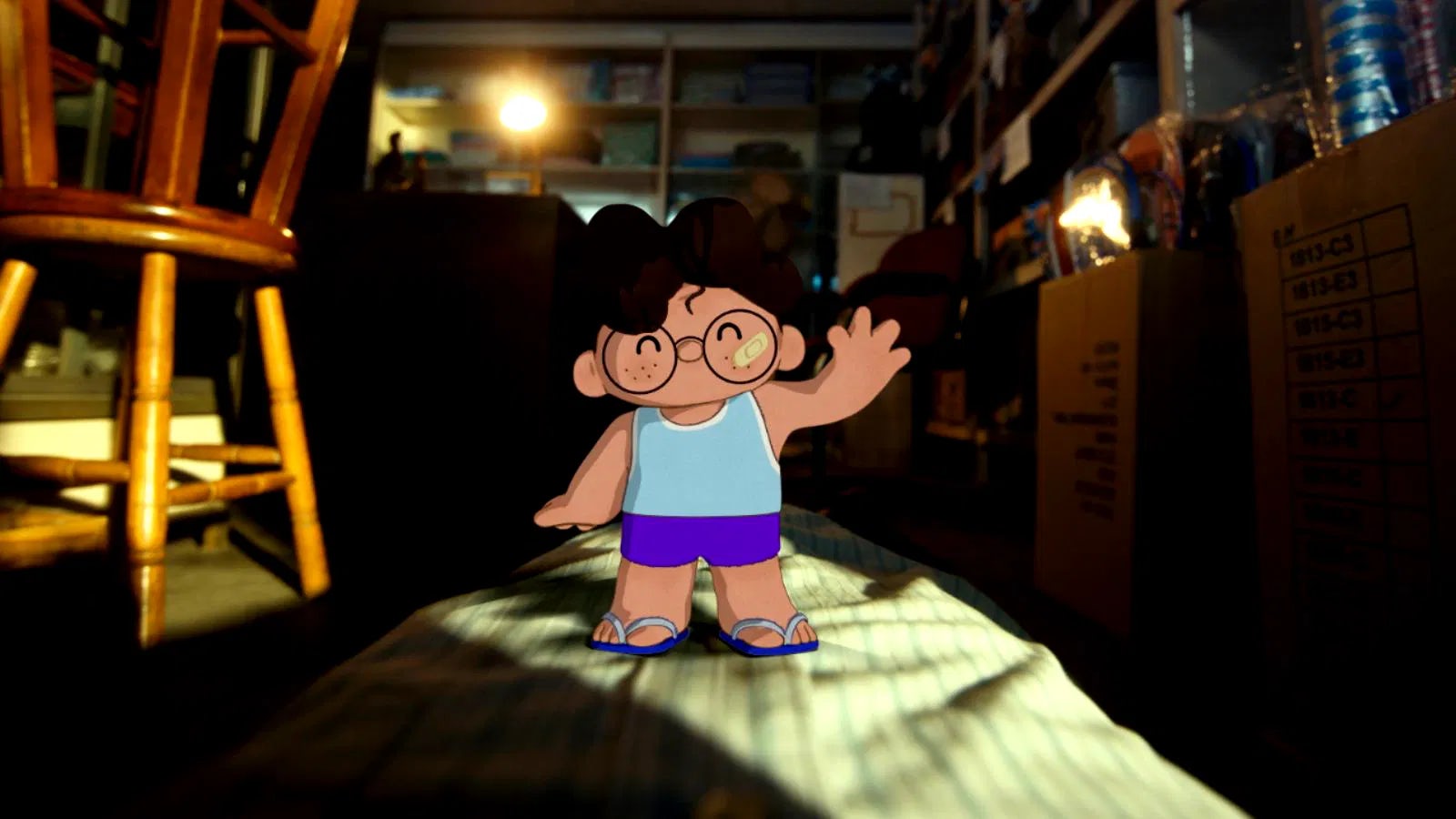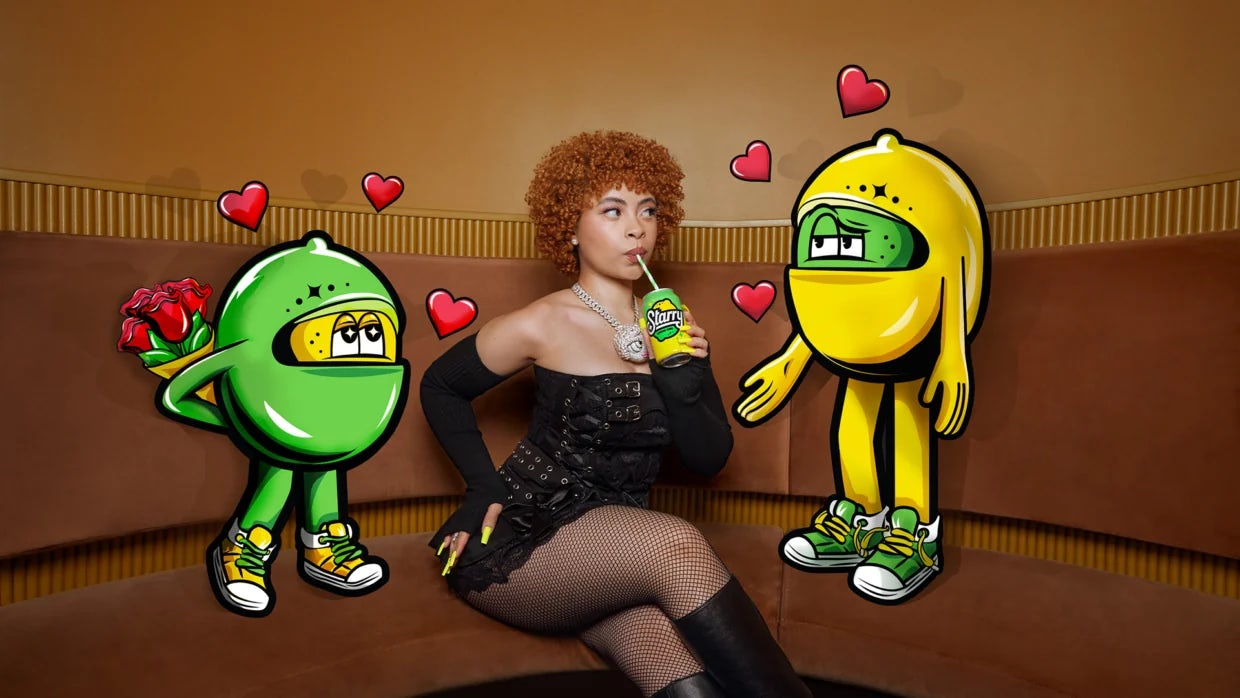The Monthly Interview: Gary Vaynerchuk
We speak to the founder, investor, author, speaker and internet personality about creative entrepreneurship, the underrated power of optimism, and why his agency will never – ever – go public
Gary Vaynerchuk isn’t one for small talk. Seconds into our meeting the conversation has vaulted from ‘how do you do?’ to a philosophical point about the importance of optimism. Pessimism is easy, he muses. Cynics can be explicit about their doubts, while hopeful people are prone to keeping their cheer under wraps for fear of being torn into.
Not him though – with so much negativity around, he feels a responsibility to use his voice to pump people up. I’m to learn that Vaynerchuk’s observations are panoramic. Our chat will cover off issues ranging from the troubled state of advertising, to whether companies might be better if they resembled monarchies. It’s big talk only.
Speaking of negativity, a quick glance at our surroundings doesn’t give much cause for it. The get-together is happening on a sun-blanched deck aboard the VaynerX yacht, which is moored in the French Riviera for the Cannes Lions Festival of Creativity. There is a bounteous spread of continental breakfast fare, and an implausibly tall bar offers a steady supply of coffee during the day, and cocktails at night. Team members float around clad in linen (of the quiet luxury variety).
Vaynerchuk is among the most heeded voices in creative entrepreneurship. His influence can be attributed (at least partly) to a tireless personal branding effort. On social platforms he is known as ‘Gary Vee’ and dispenses bite-sized wisdom on a multitude of topics surrounding marketing, leadership, and self-fulfilment. Snippets on YouTube have titles such as ‘38 Mins of Business and Marketing Advice That Will Save You Millions’ and, ‘The Most Practical Way to go From $100 to $1,000’. Is it click-bait? Perhaps. Is it valuable? A legion of 44 million followers certainly think so.
If Vaynerchuk’s insights are a cut above most who show up in your feed, it’s because he has substantial skin in the entrepreneurial game. Recognising the commercial potential of Web 2.0 in the late 90s, he used ecommerce and content creation tools to supercharge his father’s wine business, naming it Wine Library, launching a website and a wine review show on YouTube. Keynote speeches followed, then a book – Crush It! – which became the first of six New York Times best sellers. His latest book on business is Day Trading Attention: How to Actually Build Brand and Sales in the New Social Media World.
In 2009 Vaynerchuk banded together with his brother AJ, and created VaynerMedia, a creative and media agency that spawned a family of other professional services brands, as well as a parent organisation to sit above them, VaynerX. In its short-ish history, VaynerMedia has produced a raft of landmark campaigns – luring clients including Pepsi, Toyota, and Budweiser. It has opened offices in seven global locations and now has around 1,200 personnel. It’s scooped up an enviable build-up of awards along the way too.
Beyond the gunwale of the VaynerX yacht, the festival is roaring to life. In recent years, the efficacy of creativity has been under scrutiny. When clients have access to performance marketing, A/B testing and reams of data, is creativity getting squeezed out of the equation? Vaynerchuk thinks that the impact of it is as transformative as ever, but the industry’s definition has become too limited. When delegates crow about the importance of creativity, really they’re alluding to a specific format: the 30 second TV ad.
“Where advertising is concerned, we have romanticised yesterday, and it’s hurt us,” says Vaynerchuk. “I think that creativity is alive and well. But Madison Avenue needs to recognise that we are not the contributors to it. The ads are happening. But they’re being done by humans on social media. The most viral pieces of creative, which are actually selling product, are being done by consumers on TikTok. Not by agencies.”
My go-to point about the advertising industry right now is this. It is infatuated by tomorrow. Romantic about yesterday. And it sucks at today
Indeed, fuelling this obsession with the past is ad agencies’ reluctance to focus on the present. Meanwhile, they seem preoccupied with the future too. While 12% of Cannes entries used AI according to organisers, discussion around the technology was pervasive on stages around the festival. “My go-to point about the advertising industry right now is this,” says Vaynerchuk. “It is infatuated by tomorrow. Romantic about yesterday. And it sucks at today.”
Creativity in advertising is therefore in the midst of a difficult period of transition. But Vaynerchuk believes that the pain will be temporary. After all, agencies have had to acclimatise to new formats before: “The same scenario happened when we went from radio to television,” he says. “The industry didn’t know about moving image. It knew copy and art direction. Your smartphone is the television now. And the television is the radio. The second that we start making ads for social as the primary source of brand-building in this industry is the second that we’ll feel creative again.”

Getting serious about social sounds like a simple fix. So why are agencies slow to respond? Vaynerchuk thinks it has to do with two conditions of the industry as it stands. The first is about the priorities of those in charge: “This entire town of agencies is run by bankers,” he says. “We have creative agencies that are being run by un-creative people. The focus is on making EBITDA, all they care about is the P&L.”
A lack of imagination at the helm is one issue, but the structure of too-big-to-fail agency conglomerates is compounding the problem, Vaynerchuk explains: “When you’re a giant brand like Coca-Cola or Nestlé, you’re likely to do a full deal with WPP or Omnicom,” he says. “It’s the media that is appealing. These agency partners will throw their creative into the deal too. But if you’re a CMO of one of these brand clients, you’re not thrilled.”
Then what of all the hoopla around Cannes? The ceremonies, awards, and lion statuettes that take pride of place in the foyers of big agencies? Not to mention the substantial cost associated with sending teams to the festival, and the fees it takes to enter one of the categories: “Awards are an entire justification of a bill that is not ROI positive,” says Vaynerchuk.
@duracell Ann buys her own batteries, too. And trust her, different is good. ???????????????? @ariana madix #annmaddox ♬ original sound – Duracell
With a staff numbering in the thousands, and a holding company sitting above it, we wonder whether there’s a danger of VaynerMedia succumbing to the same issues. How does the company stay fresh when it’s technically part of a conglomerate? “Every day I’m sad about being a corporation,” he says. “I’m not going to bullshit you, we’re a different place compared to when we were 80 people. We will never be like those other companies for a simple reason – we will never go public.”
Retaining ownership, Vaynerchuk believes, is also a way to ensure that the focus is where it should be: on clients. He fears that inviting investment would create new masters (that is, shareholders) for he and his team to serve. “The compassion and empathy I have with the CEOs we work with is very high,” Vaynerchuk explains. “If your agency has to make numbers every 90 days, then you are going to do all the wrong things by your clients. The motivation switches to doing right by shareholders. Is there still a fear? Yes. Will it ever hit maximum state of bullshit? No.”
There must be more to cultivating a creative environment than keeping the company private. How does VaynerMedia keeps its culture on track? Vaynerchuk likens the structure of a creative company to running a country. The question becomes this: which model – autocracy or democracy – does your leader opt for?
@twistiesau Replying to @hailey (haylor’s version) ???? what do you mean you don’t get it?? #Twisties #TwistiesAustralia #SkyWriting #Sydney ♬ original sound – Twisties
“There are a lot of ways to run a country. There are dictatorships, which are effective but harmful. Getting things done happens at the expense and suffering of the public,” he says. “Then there are democracies. These are remarkable, until they get so big that it’s hard to get anything done.”
Does this mean that a successful creative company should wrap in elements of both? Not exactly, according to Vaynerchuk: “Monarchies are interesting,” he says. “I like the monarchy thing because it’s got a mix of ‘we’re going to get shit done’, but the leader is also held more accountable. It’s above my pay grade to determine the perfect order of a country or a company. But I don’t micromanage my team. I give people a lot of freedom. But occasionally – say once a year – something will hit my fancy. And it will happen at all costs.”
It’s time for me to disembark. Heading toward the gangway there’s the uncanny feeling of having just been beamed into a live version of the Gary Vee show. Rather like one of his clips, the content was expansive, candid and edifying. And fast: if most conversations happen at around 150 words per minute, I wonder what Vaynerchuk’s average will be during the week. With multiple speaking engagements and meetings slated for the rest of the festival, I marvel at his ability to keep the cadence up. What’s the secret? “Most people view me as a yapper. They see me in feed, or on stage,” he says. “The truth is, I spend more time listening than talking.”
vaynermedia.com




